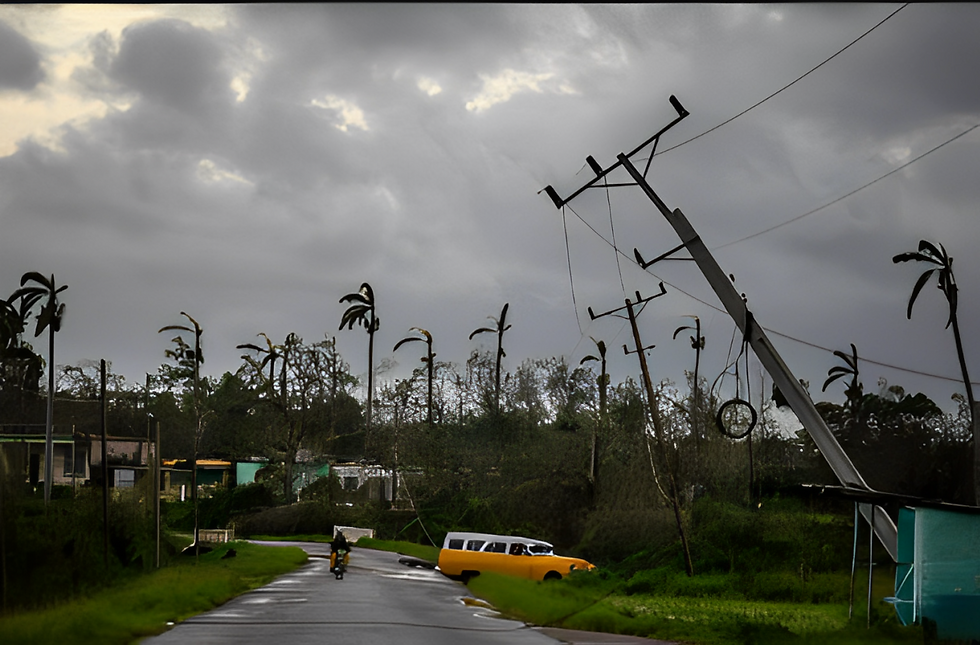Nationwide Blackout Hits Cuba Following Main Power Plant Failure
- Jeffro Jerin
- Oct 19, 2024
- 2 min read
Cuba is currently grappling with a nationwide blackout after a significant failure at its primary energy facility, impacting approximately 10 million residents across the island. The power grid collapsed around 11:00 AM local time (15:00 GMT), as confirmed by the Ministry of Energy on social media.

Grid officials remain uncertain about the timeframe for restoring power, heightening concerns as the nation has already been experiencing prolonged outages for several months. In response to the deteriorating energy situation, the Prime Minister declared an "energy emergency" just a day prior to the blackout.
The blackout was triggered by the failure of the Antonio Guiteras power plant in Matanzas, Cuba's largest energy producer. President Miguel Díaz-Canel Bermúdez emphasized that addressing the crisis is his "absolute priority," vowing that efforts to restore power will be relentless.
Lazara Guerra, the head of electricity supply at the Ministry of Energy, reported that while the restoration process has just begun, there is a limited level of electricity generation that can be utilized to restart power plants in various regions.
In light of the situation, officials have mandated the closure of all schools and non-essential services, including nightclubs, until Monday. Non-essential personnel are encouraged to remain home to conserve electricity, while citizens are advised to refrain from using high-energy appliances during peak consumption hours.
Residents have expressed their frustrations over the recurring power outages. Eloy Fon, an 80-year-old pensioner from central Havana, described the situation as “crazy,” highlighting the vulnerability of the island's electricity system. “We have no reserves, there is nothing to sustain the country; we are living day to day,” he lamented.
Bárbara López, a 47-year-old digital content creator, shared her struggles, stating that she has been unable to work effectively for the past two days due to the blackout. “It’s the worst I’ve seen in 47 years,” she remarked. “We have no power or mobile data.”
Prime Minister Manuel Marrero, in a televised address, attributed the widespread outages to failing infrastructure, fuel shortages, and increasing demand for electricity. “The fuel shortage is the biggest factor,” he admitted.
Alfredo López Valdés, head of the National Electric Union (UNE), acknowledged that the island has been navigating a challenging energy crisis, primarily driven by shortages.
The severity of these extended blackouts, particularly one as extensive as this, poses a significant challenge for the Cuban government, as maintaining power is crucial for public order. In July 2021, widespread protests erupted following days of prolonged outages, driven by citizens’ frustrations over spoiled food and the stifling heat caused by lack of air conditioning.
Moreover, the absence of electricity disrupts water supply, as many buildings rely on electric pumps to bring water to taps. The situation has been further complicated by fuel shortages, which limit citizens' ability to work or use vehicles for essential tasks.
Increasingly, many Cubans are losing their fear of voicing grievances about the daily struggles they endure. Some are willing to take to the streets, vocalizing their frustrations, even resorting to anti-government slogans if conditions deteriorate further.
As Cuba faces this latest crisis, the impact of the blackout reverberates through daily life, forcing residents to confront the precariousness of their energy supply and the ongoing challenges that lie ahead.









Comments